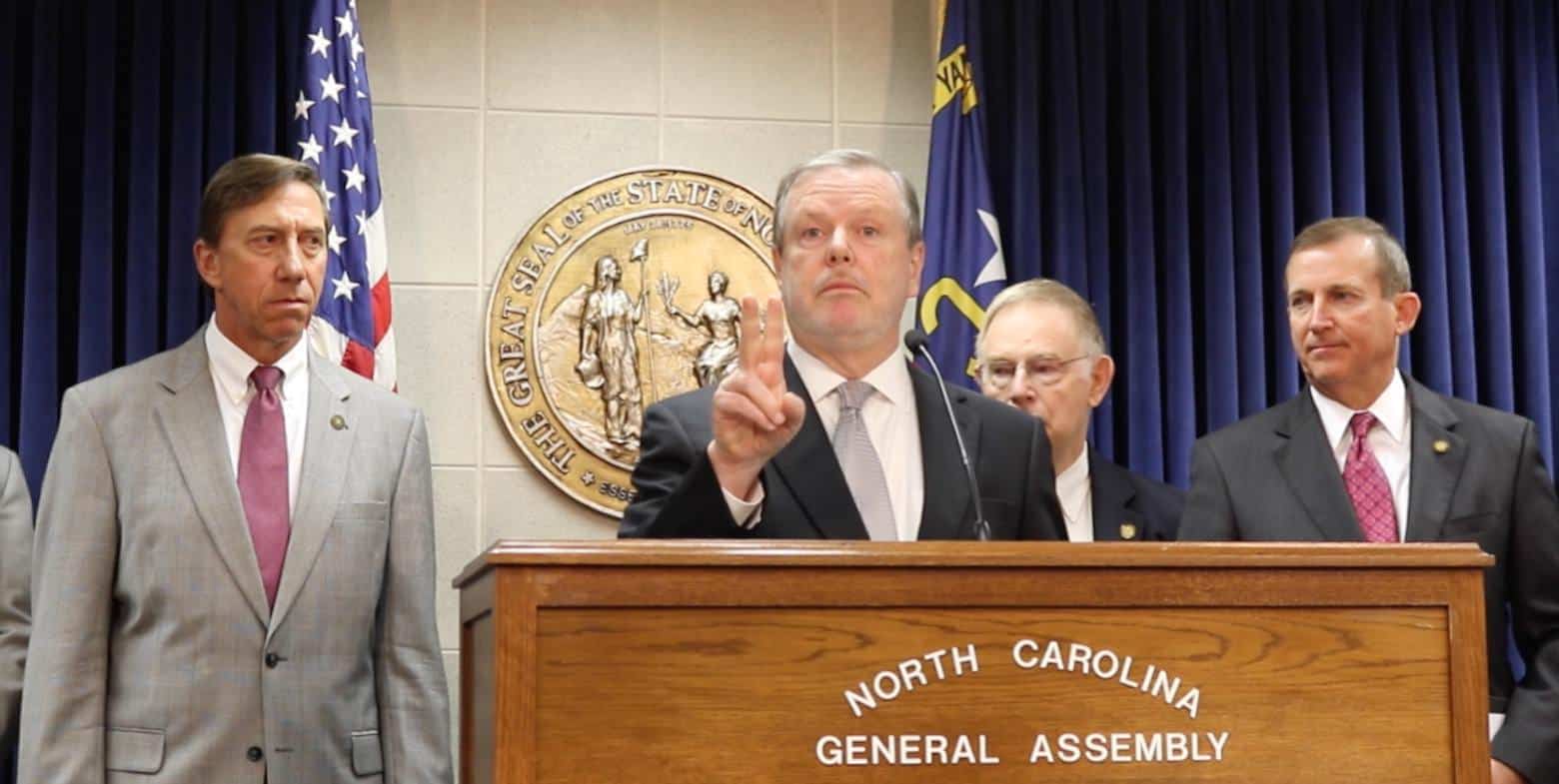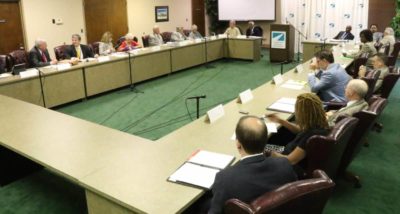Senate President Pro Tempore Phil Berger, R-Rockingham, unveiled at a press conference yesterday the Senate’s proposed teacher pay plan, including a much more ambitious target for average teacher pay than seen in the plans from either Governor Pat McCrory or the state House.
Berger said the plan would move average teacher pay in North Carolina to $54,224 in two years, making the state number one in the Southeast and 24th in National Education Association rankings for average teacher pay.
“Just one month ago, Senate Republicans announced our support for Gov. McCrory’s goal to raise teacher pay to $50,000 on average, and we are proud this plan not only meets his goal, but exceeds it by almost $5,000,” Berger said during the press conference.
The Senate proposal would bring average teacher pay to $51,047 in the first year. Berger said the proposal also shortens the amount of time it would take a teacher to reach $50,000 — the top amount teachers receive in salary when only looking at the state’s normal financial contribution — to only 15 years. Right now, it takes 25 years. Berger also said the proposal would mean an additional $198,650 in pay over a 30-year career for teachers.
Under the Governor’s proposed pay plan, the Governor said teachers would get an average 5 percent pay raise and an average 3.5 percent bonus. The 5 percent was calculated by taking the governor’s proposed salary increase and dividing it by the current base salary.
Under the House’s plan, House leaders said teachers would have gotten an average 4.1 percent raise. It was calculated by first factoring in the funding for the increased levels of pay on the different steps of the teachers salary schedule. Then, that number was combined with the salary increases teachers get if they are moving up to the next step on the teacher salary schedule. The percentage of the funding increase — 3 percent — when added to what was calculated to be an average 1.1 percent for teachers moving up steps amounts to a 4.1 percent increase. This methodology has been used for more than a decade and is the basis for historical comparisons.
Berger didn’t indicate how much of a percent increase the Senate’s teacher proposal amounts to. However, he did say that in the first year of the pay increase, the average salary would be $51,047. Given that the NEA’s current estimated average salary in North Carolina is $47,985, that would amount to a 6.4 percent increase. Berger also said that in 2017-18, the average teacher salary would become $54,224. That would be a 13 percent increase from the NEA’s estimated average salary for 2015-16.
The statement that NC could move up in the NEA rankings to 24th assumes no pay raises by other states. In the event that happens, those projected rankings could change. Lawmakers said that the 2014 teacher pay raises would boost the state’s rankings to 32nd. The estimated rankings just came out for 2015-16, and North Carolina is 41. It was 42 last year.
BEST NC, a collection of business leaders that advocates for education, put out a press release in favor of the Senate’s proposal after the press conference yesterday.
“The Senate’s proposal for teachers to earn more money, faster will help recruit top talent to the profession, reduce turnover, and dramatically increase career earnings,” said BEST NC CEO Brenda Berg. “BEST NC commends the Senate for this targeted investment, and encourages all of our state leaders to build on this evidence-based schedule with opportunities for teachers to earn more for taking on classroom leadership roles, teaching in hard-to-fill subject areas or taking positions in hard-to-staff schools.”
The North Carolina Association of Educators, however, is less enthused.
“Clearly the devil is going to be in the details on this proposal, and we haven’t seen them. NCAE has consistently beaten the drum that for our students to be more successful, we must invest fully in our public schools by increasing the resources they have and by compensating educators as professionals,” said NCAE President Rodney Ellis in an e-mailed response. “Now, because it’s an election year, Senate leaders are trying to play catch up from the destructive swath they created for our public schools.”
The Senate only unveiled its teacher pay proposal yesterday. Berger didn’t give details on Senate plans for any other part of the education budget, except for revealing the nugget that there wouldn’t be “significant modifications” to teacher assistant funding. The budget still needs to be hammered out with the House, which prioritized teacher pay at a lower level than the Senate while proposing to spend a lot of money on some other education proposals. Berger said the full Senate budget will be unveiled next week, likely Tuesday.
Berger also didn’t reveal exactly how the teacher pay proposal would be paid for, except to say that revenues are up and the state’s financial outlook is better now than it has been in some time.
A website with minimal additional information from the Senate on its teacher pay plan can be accessed here.
Below is a video of the press conference.



